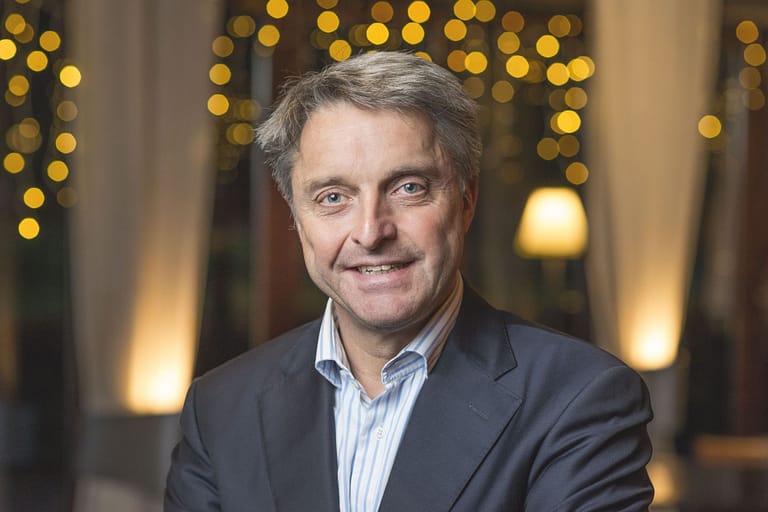
Article
It is necessary to embrace the transformation
Everything that is possible in the field of digital innovation is not yet necessary. There is madness. Mum's or dad's smartphone that gives a signal when baby's nappy is wet. It exists. The app for a mug that indicates the ideal drinking temperature. Because yes... the best temperature for tea differs per type.
Joachimsthal comes in dry - with an umbrella - because he used a weather app that predicted rain. Extremely functional, because he knows that a photographer is coming. After some time in the conversation, he suddenly says: "I don't care much for technology at all."
It is remarkable to hear this from the mouth of the chairman of the advisory board of the top sector Life Science & Health. Who in daily life is vice president healthcare of a large consultancy for digital innovation, Mobiquity. The co-developer of the first digital pill. "There is too much technology, too much technology drive," he says. As an example, he mentions apps for people with the chronic disease asthma & COPD. There are around 1,500 of these worldwide. They are used by less than 1% of patients. "In those apps, the treatment is almost always central," says Marcel. "Mostly they are digital versions of treatment guidelines. The apps add little to what the patient needs in terms of daily support. What is important in healthcare innovation is that you always have to involve the citizen, the patient."
"Reducing the burden of disease caused by an unhealthy lifestyle is the most complicated mission," says Marcel. "Personalised care can contribute to more care taking place in the patient's own environment. But for that, we need to sail close to the wind. If the Netherlands wants to excel in health and care, it needs to embrace transformation, the reorganisation of care." Joachimsthal calls data "the oil of the 21st century", but is critical of the speed at which Artificial Intelligence and big data are being applied in our country: "If the government creates preconditions through better data infrastructure, then by turning the right knobs we can achieve faster progress. But if interoperability - systems that can 'talk' to each other - is lacking, then organisations can, so to speak, innovate better if they make efforts in the US or China, because yes, there are fewer rules there."
"In the transformation of care to personalised care, four questions are important," says Marcel. "At what stage of the disease can we intervene, i.e. prevention? How well can we predict how the individual patient will respond to treatment? How well is the medicine tailored to the individual patient?
To what extent is the patient involved in the diagnosis and treatment?" Digital innovation can play an important role. Marcel argues that resolving friction in patients' daily practice is crucial for a digital solution to be of value to the end user.
MijnMaximaPlan is a digital innovation that can serve as an example of how technology can be used to really make a difference.
For the Princess Máxima Centre (paediatric oncology), the entire treatment process has been carefully mapped out. When parents hear that a child has cancer, it is a traumatic experience. It immediately has a major impact on the information-processing process. The information that is given, comes in badly. "Parents and children are on a roller coaster of emotions. Because we have mapped everything out so carefully, we have also discovered where the frictions are in this process," says Marcel. Sometimes they lie within the treatment - it turned out that an MRI exercise was very important - and sometimes they lie outside the field of interest of the healthcare professional. "Can my daughter go to swimming lessons on Thursday if she has to undergo chemotherapy on Tuesday? MyMaximaPlan was built to resolve the frictions.
- Peter van den Besselaar
- Article
- November 26, 2021
- No Comments

